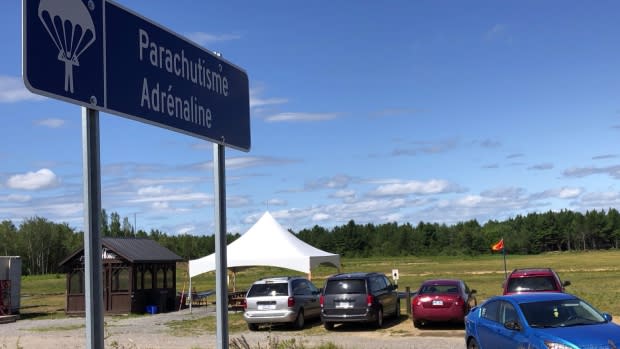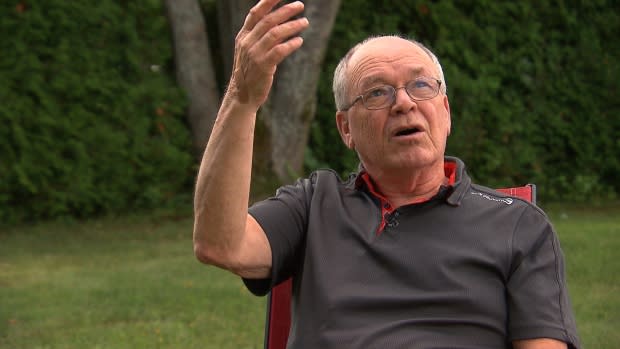'It's a miracle': Woman survives fall from plane after parachute fails
Denis Demers is still processing what he witnessed on Saturday evening in Trois-Rivières, Que., when a skydiver's parachute failed to open properly as she plummeted a kilometre and a half to the ground.
"It's a miracle," Demers told Radio-Canada on Wednesday. "I don't know how a person can survive a fall from an airplane like that."
He said the solo skydiver was falling faster than anybody else, and neither the woman's main parachute nor backup chute opened.
The 30-year-old, who hit trees while landing in a wooded area, is recovering in hospital with several fractures, including broken vertebrae, but police say her life is not in danger.

She was participating in a jump at the skydiving facility Parachutisme Adrénaline, located near the airport. The company refused to comment because an investigation is underway.
The woman had experience skydiving, according to Trois-Rivières police, who are investigating to determine if this is a case of criminal negligence.
Océane Duplessis was about to board a different plane for her own jump when the accident happened.
"We watched all the way to the end. We kept hoping something would happen," she said. "We were very worried. Very."
Accidents like this rare, USPA says
To say a parachute didn't open is "pretty vague and often not correct," Nancy Koreen, director of sports promotion for the US Parachute Association (USPA), said after hearing the basic facts provided by provincial police.
The parachute must be opened at the proper altitude or it won't have enough time to fully deploy, she said. There is a chance the main parachute malfunctions and the skydiver must rely on the backup chute.

However, she said, parachute malfunction is "extremely rare" and accidents are usually caused by user error as there are specific steps that must be taken in an emergency.
The jumper must release the main chute and deploy the backup chute once the main chute is clear, to ensure there is no tangling, she said.
"To say none of the parachutes opened is probably misleading ... It's not really the way the parachute works," she said.
Skydiving death rate is low
Skydivers hit speeds of about 177 km/h while free falling. That's just about 300 metres every six seconds, according to the USPA.
In 2018, the USPA recorded 13 fatal skydiving accidents in the U.S. out of roughly 3.3 million jumps — the lowest number in the sport's history, the association says.
Before that, there were 21 to 24 deaths per year since 2013 — that's about one fatality per 253,669 jumps. And tandem jumps have even better odds at one per every 500,000 jumps over the past decade.
The Canadian Sport Parachuting Association declined a request for an interview.

 Yahoo News
Yahoo News 
